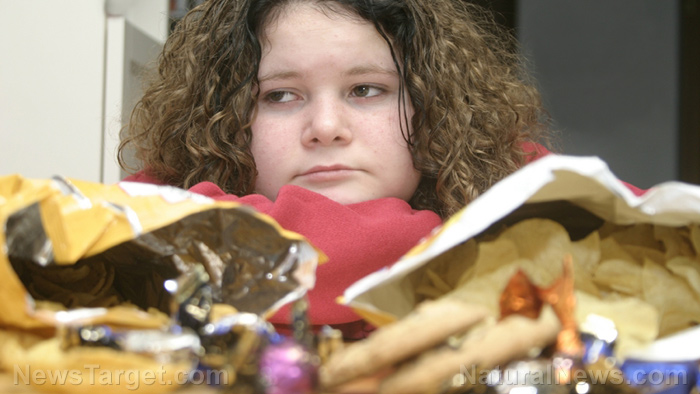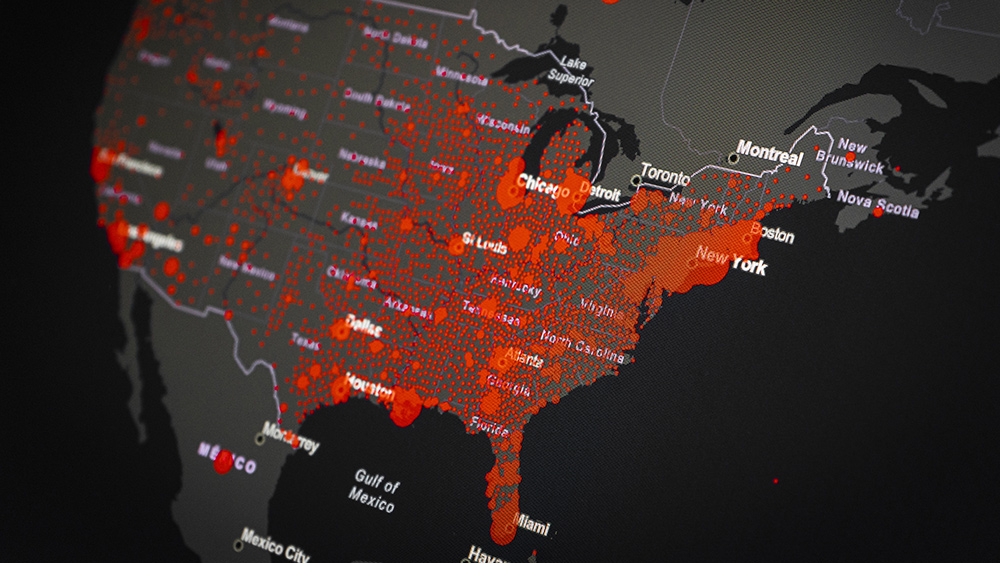Coronavirus lockdowns worsen childhood obesity, studies say
06/06/2020 / By Franz Walker

The lockdown measures implemented to slow the spread of the Wuhan coronavirus (COVID-19) are worsening child obesity due to decreased physical activity and poorer diets.
U.S. researchers have found that obese children in Italy participated in less physical activity while eating more junk food and watching more TV while social distancing measures to stop COVID-19 were in place. The lockdowns also disrupted sleep activity, allowing these children to sleep longer than when they had to go to school.
In addition, obese children who usually engaged in weight control programs at school have had their schedules disrupted, something the researchers warn could affect them into adulthood.
Risk of childhood obesity warned back in April
Public health officials in the U.S. first raised concerns that lockdown measures could increase child obesity in April. Back then, a group of researchers led by Andrew Rundle of the Columbia Mailman School of Public Health predicted that the COVID-19 pandemic would double out-of-school time for many children. This could consequently exacerbate the risk factors for weight gain often associated with the summer break.
Rundle and his team warned that thanks to the lockdowns, children would end up exposed to more shelf-stable processed food than they normally would be.
“As households stock up on shelf-stable foods, they appear to be purchasing ultra-processed, calorie-dense comfort foods,” noted the researchers. “Our own experiences in supermarkets show that along with the shelves that held flour, rice and beans, the shelves that held crackers, chips, [instant] noodles, soda, sugary cereals and processed ready to eat meals are quite empty.”
The team also pointed to the fact that weight gained during the summer break tends to be maintained over the school year and can accrue from summer to summer.
Childhood obesity worsened in Italy
A new study, published in the journal Obesity, looked at whether or not the pandemic did worsen childhood obesity.
“The tragic COVID-19 pandemic has collateral effects extending beyond direct viral infection,” said co-author Myles Faith, a childhood obesity expert at the University of Buffalo.
Faith and the rest of the researchers surveyed 41 overweight children under confinement in the city of Verona, Italy. The researchers collected information regarding their diet, activity and sleep for a period of three weeks.
Their questions for the study participants focused on physical activity, eating habits, screen time, sleep, as well as the consumption of red meat, pasta, snacks, fruits and vegetables. This information was then compared to data from the previous year.
Compared to the previous year, the children ate an additional meal per day, slept in an extra half hour and spent an extra five hours per day in front of their phone, the television and computer screens. (Related: Responsible TV and Internet advertising needed to reduce childhood obesity.)
The results of the study confirmed an overall “negative change” in behaviors due to the lockdown. In addition, the researchers say that it showed the importance of a daily school-based routine to health.
“School environments provide structure and routine around mealtimes, physical activity and sleep — three predominant lifestyle factors implicate din obesity risk,” stated Faith.
Excess weight gained during the lockdown may carry on into adolescence and adulthood
The study confirmed that the lockdown does have a negative impact on the risk factors for obesity in children. What Faith fears, however, is that the resulting excess weight gain may not be easily reversible.
“Children and teens struggling with obesity are placed in an unfortunate position of isolation that appears to create an unfavorable environment for maintaining healthy lifestyle behaviors,” said Faith.
Should the lockdowns continue, the excess weight gained by the children could contribute to obesity during adulthood if their previous healthier behaviors are not re-established.
“This is because childhood and adolescent obesity tend to track over time and predict weight status as adults,” he explained.
Given their findings, Faith believes that government officials and policymakers should consider the potentially harmful effects that lockdowns have on children with obesity when making decisions on when to loosen them.
Sources include:
Tagged Under: children's health, coronavirus, covid-19, diet, disease, fitness, Flu, Italy, lockdown, lockdowns, obesity, outbreak, pandemic, quarantine, USA, virus




















